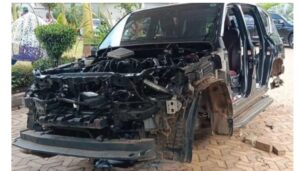Kenya staring at fuel shortage as oil marketers blame it on EPRA

Petroleum Outlets Association of Kenya (POAK) says fuel retailes being 'forced' out of market due to losses over EPRA subsidy
Petroleum Outlets Association of Kenya (POAK) says fuel retailes being ‘forced’ out of market due to losses over EPRA subsidy.
Kenya staring at a fuel shortage as a result of independent fuel retailers, who make up 68% of the market, blaming an EPRA subsidy that has reduced their margins.
The Petroleum Outlets Association of Kenya (POAK) noted on Thursday that certain retailers have experienced losses as a result of the State’s removal of wholesale caps, which has caused their margins to contract.
While the subsidy protects customers, POAK CEO John Njogu observed that it has exposed fuel stations, with some of them unable to turn a profit and being forced to close.
“Without a wholesale cap, independent players who make 68 per cent of petrol stations in Kenya are buying fuel at Ksh1 margin or zero margin which is forcing them to shut down their petrol stations due to lack of profitability,” he stated.
POAK maintained that without a wholesale cap, the independent suppliers were unable to supply fuel to motorists since they were accessing fuel from wholesalers at the same rate as EPRA-approved pump prices.
“Price stabilisation is supposed to support the whole industry,” POAK had complained.
Why Ruto fired contractors on a roadside rally
Ruto reiterates ‘journey to heaven’ as one party withdraws from Mumias case after threats
List of issues agreed by Azimio and Kenya Kwanza to be discussed in the bipartisan talks
Ousted Ali Bongo begs for help as EU calls for a crisis meeting over Gabon coup (VIDEO)
Nyayo House clean up; Four passport brokers arrested
According to Njogu, the logistics of fuel involves three key players; importers, wholesalers and retailers.
“With a wholesale cap, there is a Ksh12.36 margin per litre of fuel between the importer and the retailer,” he explained noting that this meant wholesalers had to sell to retailers at Ksh8 margin.
Njogu explained that with stabilisation in effect, the OMCs were free to sell at a wholesale price of their choice.
Since the marketers also operate their own pump stations, they were now selling the fuel to retailers at Ksh193 or Ksh194.68 which is the approved pump price by EPRA.
“This means that most petrol stations are not able to make any profit and are closing shop until a time when the government will re-introduce the cap enabling them to be able to sell at a profit,” he explained.
Njogu noted that most rural areas will go without fuel since most independent retailers supply remote areas.
Also read,
Concerns over missing details on Ksh 13b World Bank loan
Gabon coup leaders name General Brice Oligui Nguema, cousin to Bongo as new leader
Wagner chief Prigozhin secretly buried without fanfare in public cemetery
Babu Owino announces his ambitions for 2027 Nairobi Gubernatorial seat
Reprive for Kenya as donors halt termination of funding
Follow us




